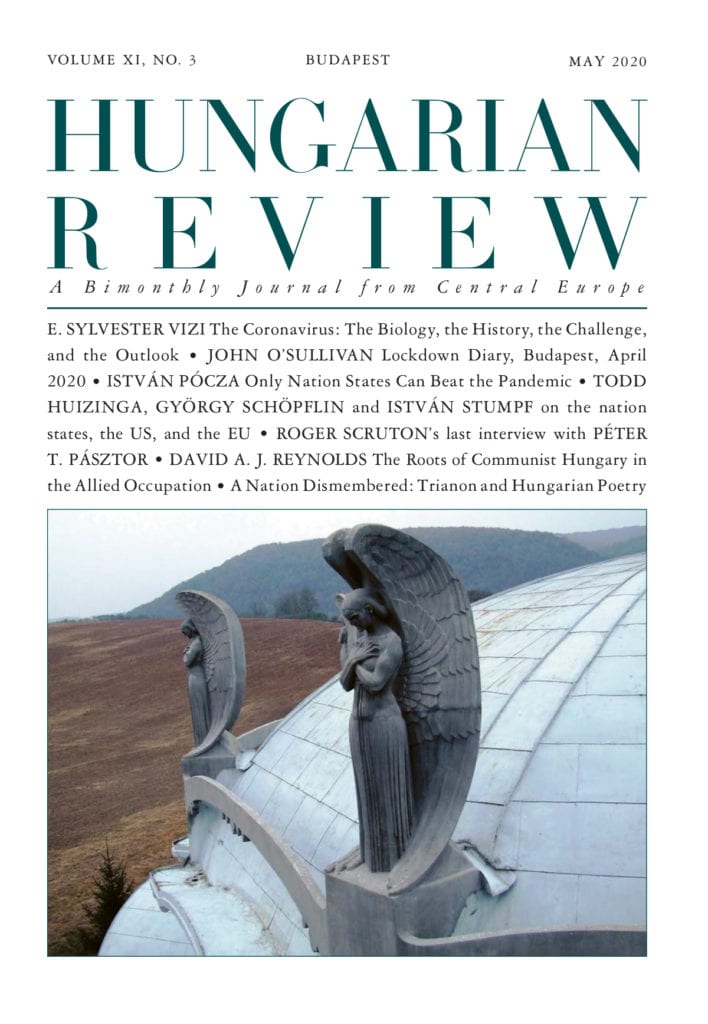MAKING A VIRTUE OF NATIONALISM
“Our own world on 1 January 2020 was not quite so turbulent as that, but it was a great deal more turbulent than it had been on the same date

“Our own world on 1 January 2020 was not quite so turbulent as that, but it was a great deal more turbulent than it had been on the same date
“‘Ghost trains’ and ghost buses are the most visible and oddly comforting -expression of Budapest’s lockdown. Because ‘essential workers’ still have to get to and from work, and the other
“In December 2019, a series of pneumonic cases of unknown cause emerged in Wuhan, a large city of 11 million in central China, with a clinical presentation resembling viral pneumonia.
“The outbreak of COVID-19 in Europe has brought numerous political lessons. The first and most important of these is clearly that the European Union’s institutions were visibly at a loss
“The complex relationships between law and politics have undergone quite remarkable changes over the past few decades. Commentators and researchers have been particularly alerted to the twin phenomena of the
“This is a strange world we live in. For the overwhelming majority, the coronavirus and the future of the economy constitute the central problems of the day. There will always
“Political correctness and identity politics are the two sides of the same postmodern coin. They both reject the idea that there is any truth claim that can command greater allegiance
Unknowingly, I requested to do an interview with Roger Scruton for the literary-cultural magazine-to-be Országút last July when he was found to have cancer. He nevertheless obliged, requesting to answer
Both [Antonio] Gramsci and [Rudi] Dutschke argued that radical social change in highly developed societies would be the result of long, patient organising inside and outside of key institutions, and
DEPORTATION OF GERMAN HUNGARIANS – AFTER POTSDAM At the Potsdam conference in July and August 1945, the specific deportation of ethnic Germans received the decisive approval of all three major
“One of the recipients this March of Hungary’s highest award for contributions to the arts, the Kossuth Prize, was the writer Mátyás Sárközi. This was in recognition of his writings,
Tibor Várady: Mi történt Écskán? [What Happened in Écska?]1 There is a story that could pass for a sort of erudite joke which yours truly has heard from his friend
In 2013 the new general director of the National Theatre in Budapest stepped onto the bridge of the flagship of Hungary’s theatre scene as an ethnic Hungarian from outside the
A NATION DISMEMBERED Selected Poetry from the Antology edited by Csilla Bertha and Gyula Kodolányi1 Part III SÁNDOR KÁNYÁDI BEHIND GOD’S BACK Isten háta mögött empty mangers empty stallschristmas here
ATTILA BALÁZS (Novi Sad/Újvidék, 1955), writer, translator, journalist. Author of twelve books of prose. Founder of the cultural magazine Ex Symposion. He worked as editor for the YU Radio-Television; moved